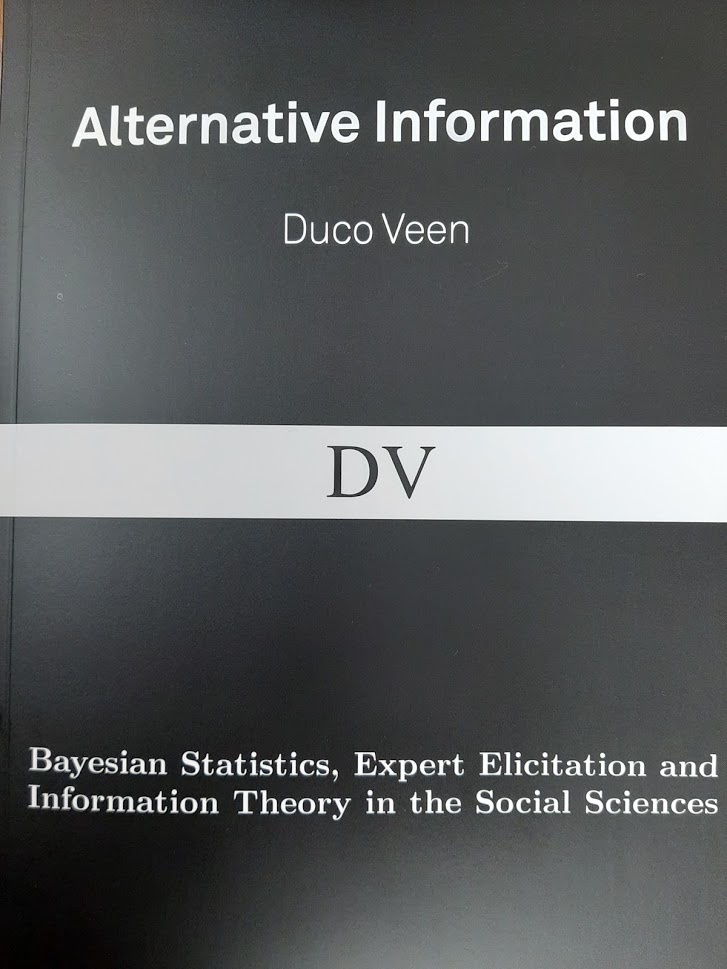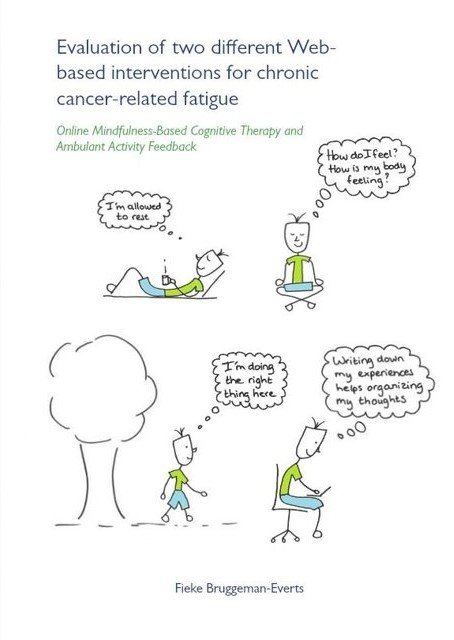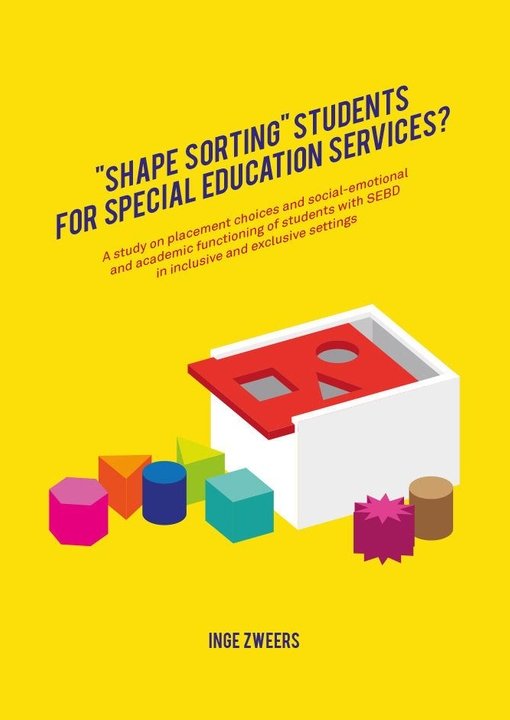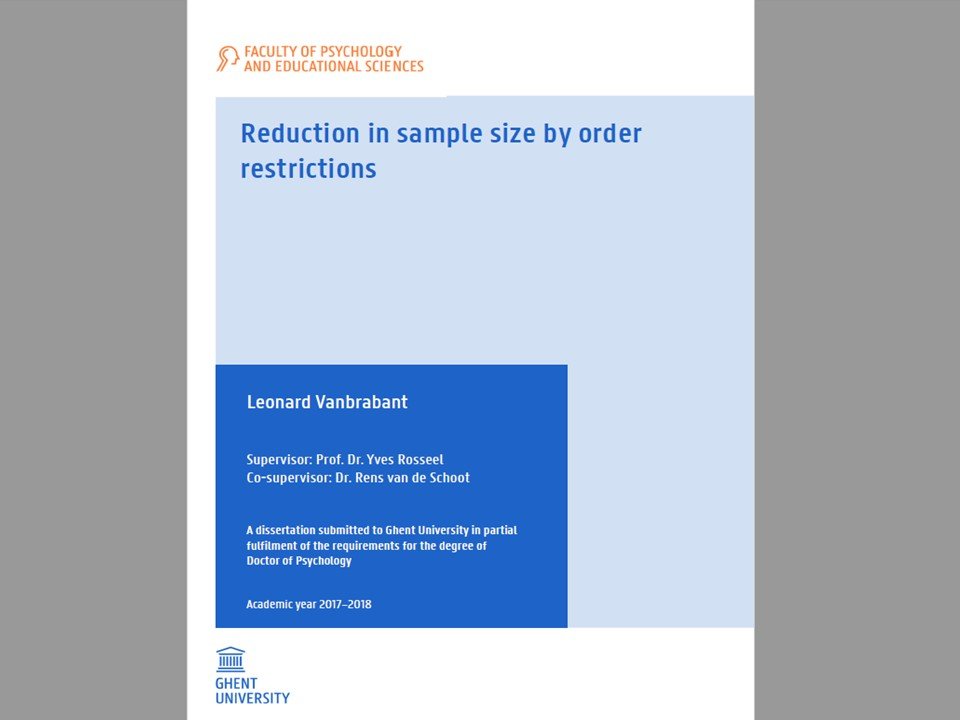Teacher knows best?
In this dissertation, we focused on two alternative approaches to evaluate the hypothesis of interest more directly, i.e. informative hypothesis testing and model selection using order-restricted information criteria.
Alternative Information: Bayesian Statistics, Expert Elicitation and Information Theory
In this dissertation, we focused on two alternative approaches to evaluate the hypothesis of interest more directly, i.e. informative hypothesis testing and model selection using order-restricted information criteria.
Family scars after pediatric burns
In this dissertation, we focused on two alternative approaches to evaluate the hypothesis of interest more directly, i.e. informative hypothesis testing and model selection using order-restricted information criteria.
Evaluation of two different Web-based interventions for chronic cancer-related fatigue
In this dissertation, we focused on two alternative approaches to evaluate the hypothesis of interest more directly, i.e. informative hypothesis testing and model selection using order-restricted information criteria.
“Shape sorting” students for special education services?
In this dissertation, we focused on two alternative approaches to evaluate the hypothesis of interest more directly, i.e. informative hypothesis testing and model selection using order-restricted information criteria.
Reduction in sample size by order restrictions
In this dissertation, we focused on two alternative approaches to evaluate the hypothesis of interest more directly, i.e. informative hypothesis testing and model selection using order-restricted information criteria.
A coach in your pocket: on chronic cancer-related fatigue and physical behavior
In this dissertation, we focused on two alternative approaches to evaluate the hypothesis of interest more directly, i.e. informative hypothesis testing and model selection using order-restricted information criteria.
Informative hypotheses: How to move beyond classical null hypothesis testing
Almost all researchers in psychology have specific expectations about their theories in the form of hypothesized order constraints between statistical parameters. For example: the mean of group 1 is larger than the mean of group 2 which in turn is larger than the mean of group 3.









